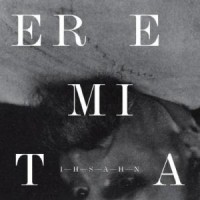 Ihsahn: Eremita (Candlelight, 6/19/12)
Ihsahn: Eremita (Candlelight, 6/19/12)
“The Paranoid”
Though the hazy noise of 1992’s Wrath of the Tyrant may seem a far cry from the sleekly produced Eremita, the songwriting of former Emperor guitarist and vocalist Ihsahn always has been based upon a very specific melodic voice. There is a clear thread from the tremolo-picked intro to “I Am the Black Wizards” (from 1993’s Emperor) to the arpeggiated “Introspection” (from Eremita), even if one composition tends much more towards Celtic Frost and the other much more towards Gentle Giant. Eremita, or “The Hermit,” is Ihsahn’s fourth solo album, and it continues a hybrid of progressive rock and black metal that was heard on Emperor’s later albums such as IX Equilibrium and Prometheus.
Ihsahn has made a career of densely melodic riffs. His sensibility always has been entrenched in the dark majesty of Romantics such as Richard Strauss, but jazz and progressive rock slowly have entered his vocabulary since the mid-1990s. This presents itself in seventh chords and major progressions not typically heard in extreme-metal compositions. Eremita is an attempt to integrate and balance these styles.
However, much of the songwriting appears to be split up into chunks. There are “metal” parts, with blast beats, palm-muting, diminished riffing, and a raspy shriek. There are “progressive” parts, with clean vocals, undistorted seventh arpeggios, and splash cymbal accents. There are parts in between, with stomping, downbeat-heavy grooves. In true metal fashion, these grooves remain un-syncopated, and so they come across as some sort of stilted funk. The continuous saxophone presence of Jørgen Munkeby of Norway’s Shining unavoidably calls up Soft Machine comparisons, although sometimes his abrasive squeaking is more reminiscent of avant-garde jazz players like Evan Parker.
The album’s greatest moments lie in specific riffs and solos, because the compositions can be a bit haphazard. As with most progressive-rock albums, one is best suited to perk up and pay attention when something particularly interesting is happening and to ignore the sillier aspects of the recording. Still, the presence of Ihsahn’s unique melodic voice allows for a suspension of disbelief that makes Eremita a compelling listen.

